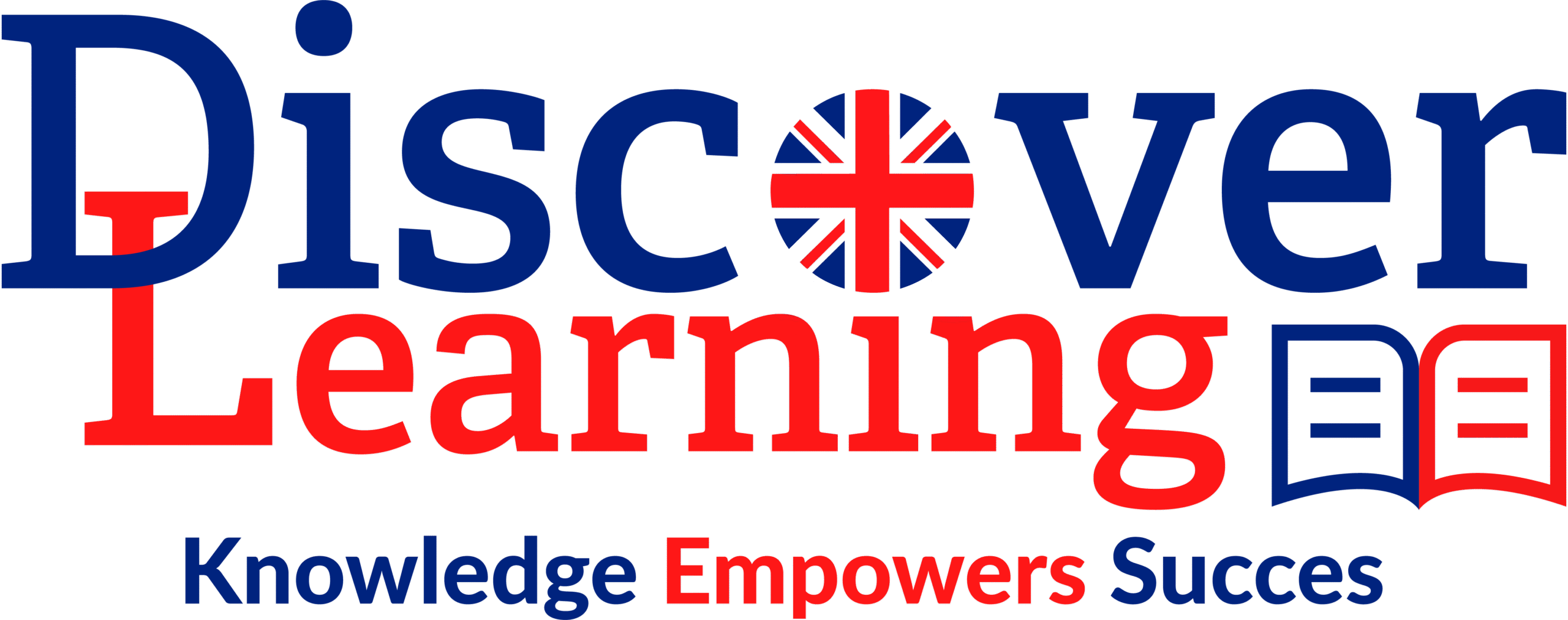
Introduction
The world of education is undergoing rapid transformation. Technology has not only changed the way students learn but also how teachers and tutors provide support. One of the most effective and innovative developments in this sphere is hybrid tutoring. Unlike traditional models that rely solely on in-person sessions or fully online methods, hybrid tutoring blends both approaches to create a flexible, adaptive, and student-centered solution.
For students, this means they can access the support they need anytime, anywhere. For families, it eliminates scheduling and travel stress. And for tutors, it expands opportunities to reach more learners while using digital tools to monitor and guide progress.
At Discover Learning Tutors, we believe hybrid tutoring is not just a passing trend but a permanent evolution in education.
What is Hybrid Tutoring?
At its core, hybrid tutoring refers to a blended learning model that integrates in-person instruction with online tutoring sessions. The goal is to maximize the strengths of both modes to create a dynamic and engaging learning experience.
Why It Stands Out
- Combines human connection with digital convenience – Students benefit from real-time engagement during in-person sessions while also having the flexibility of online tools.
- Customized learning journeys – Tutors can design a pathway that balances personal guidance with self-paced study.
- Accessibility and inclusivity – Students from different locations and backgrounds gain equal opportunities to access top-tier education.
Unlike fully online tutoring, which may lack personal interaction, or purely in-person tutoring, which often lacks flexibility, hybrid tutoring creates the perfect middle ground.
Why Hybrid Tutoring is Important in Today’s Education Landscape
Education no longer fits into a “one-size-fits-all” model. Students today juggle busy schedules, extracurricular activities, exams, and family commitments. Parents seek solutions that save time while ensuring quality education.
Addressing Post-Pandemic Learning Needs
The Covid-19 pandemic accelerated the shift to online learning, proving that virtual lessons can be just as effective as physical classrooms. However, it also highlighted the importance of in-person connection. Hybrid tutoring evolved as the answer — combining the best of both to ensure learning continuity and deeper engagement.
Key Reasons It’s Crucial Today:
- Meets the needs of students with diverse lifestyles.
- Supports learners with unique challenges (geographical, physical, or academic).
- Allows seamless continuation of education in unpredictable circumstances.
- Empowers families to choose how and when learning happens.
Hybrid tutoring has moved from being an optional experiment to becoming an essential pillar in the modern education system.
The Flexibility of Hybrid Tutoring
Flexibility in Scheduling
One of the biggest attractions of hybrid tutoring is its adaptable scheduling. Unlike fixed in-person tutoring, students can choose session formats that align with their week.
- Use online sessions for quick revisions, quizzes, or assignment help.
- Opt for in-person lessons when a concept requires hands-on guidance.
- Switch seamlessly depending on workload, exams, or personal commitments.
This flexibility also supports families managing multiple children, extracurricular activities, or professional schedules.
Flexibility in Location
Traditional tutoring often requires students and tutors to meet at a specific place. Hybrid tutoring breaks this limitation. Students can learn:
- From the comfort of their home.
- At a library or quiet study area.
- Even while traveling, provided they have an internet connection.
This makes education portable, stress-free, and accessible, especially for students in rural or remote areas who may otherwise struggle to find quality tutors locally.
Personalized Learning Through Hybrid Tutoring
Student-Centered Approach
Every student has unique learning needs. Hybrid tutoring puts students at the center of learning by designing programs around their strengths, weaknesses, and goals.
- Tutors can allocate in-person time for complex subjects like mathematics, physics, or science labs.
- Online sessions can focus on practice tests, homework help, or theoretical discussions.
- Students get equal opportunities to ask questions, clarify doubts, and progress at their own pace.
Adapting to Learning Styles
- Visual learners benefit from digital presentations and recorded lessons.
- Auditory learners thrive in discussion-based sessions, online or offline.
- Kinesthetic learners can engage more deeply during in-person tutoring for hands-on tasks.
This adaptability ensures no student is left behind, making hybrid tutoring far superior to standardized teaching methods.
The Role of Technology in Hybrid Tutoring
Technology is the backbone of hybrid tutoring. It not only enables online sessions but also enhances the effectiveness of in-person ones.
Digital Tools and Platforms
- Learning Management Systems (LMS) track student progress.
- Virtual whiteboards replicate classroom interaction.
- Interactive quizzes provide instant feedback.
- Recorded sessions allow revision anytime.
Creating Engagement
Gamified learning, digital flashcards, and collaborative online tools keep students motivated. Tutors can also share resources instantly, saving time and making learning interactive.
Technology turns hybrid tutoring from a simple mix of formats into a cohesive, engaging, and measurable learning journey.
How Hybrid Tutoring Improves Learning Outcomes
Academic Improvement
Hybrid tutoring ensures continuous support. Students don’t have to wait for the next weekly lesson to clarify doubts—they can quickly schedule an online session or use digital resources. This consistency boosts academic results.
Building Confidence
When students have the flexibility to learn in their preferred style, they feel more in control. This empowerment builds confidence and reduces the stress often linked with rigid learning schedules.
Equal Opportunities for All
Hybrid tutoring closes the gap between urban and rural learners. A child in a small town now has the same access to quality tutoring as one in a metropolitan area.
Advantages for Families and Tutors
Benefits for Families
- Time and cost-efficient – Saves travel costs and fits into family schedules.
- Flexible learning – Parents can choose when children attend in-person vs. online sessions.
- Transparency – Many digital tools allow parents to monitor progress directly.
Benefits for Tutors
- Expanded reach – Tutors can work with students across regions.
- Efficient teaching – Online tools make assessment and lesson planning easier.
- Flexibility – Tutors can adjust working hours and formats, balancing online and offline commitments.
Hybrid tutoring is not just beneficial for learners—it also empowers tutors to teach more effectively.
Conclusion
Hybrid tutoring represents the perfect balance between tradition and innovation. By combining the personal connection of in-person tutoring with the convenience and accessibility of online learning, it addresses the modern-day challenges of students and families.
From flexible schedules and location independence to personalized learning paths and tech-enabled progress tracking, hybrid tutoring is shaping the future of education. It ensures that every student, regardless of background or location, can access the support they need to thrive academically.
At Discover Learning Tutors, we are proud to be part of this educational revolution, offering hybrid tutoring solutions that adapt to each student’s journey. The future is hybrid—and it’s here to stay.
FAQs About Hybrid Tutoring
1. What is the difference between hybrid tutoring and online tutoring?
Hybrid tutoring combines online and in-person sessions, while online tutoring is fully virtual. Hybrid provides the benefits of both flexibility and face-to-face connection.
2. Who can benefit the most from hybrid tutoring?
Students with busy schedules, learners in rural areas, and exam-focused students benefit most. It’s adaptable for all ages and academic levels.
3. How does hybrid tutoring improve academic performance?
By offering flexibility, real-time progress tracking, and customized lesson plans, hybrid tutoring ensures better comprehension and long-term success.
4. Is hybrid tutoring affordable compared to traditional tutoring?
Yes, in many cases. Families save on travel and time costs. Pricing depends on the ratio of online to in-person sessions, making it budget-friendly.
5. What tools are essential for hybrid tutoring?
Students typically need a computer, tablet, or smartphone with internet access. Tools like Zoom, Google Meet, virtual whiteboards, and LMS are commonly used.
